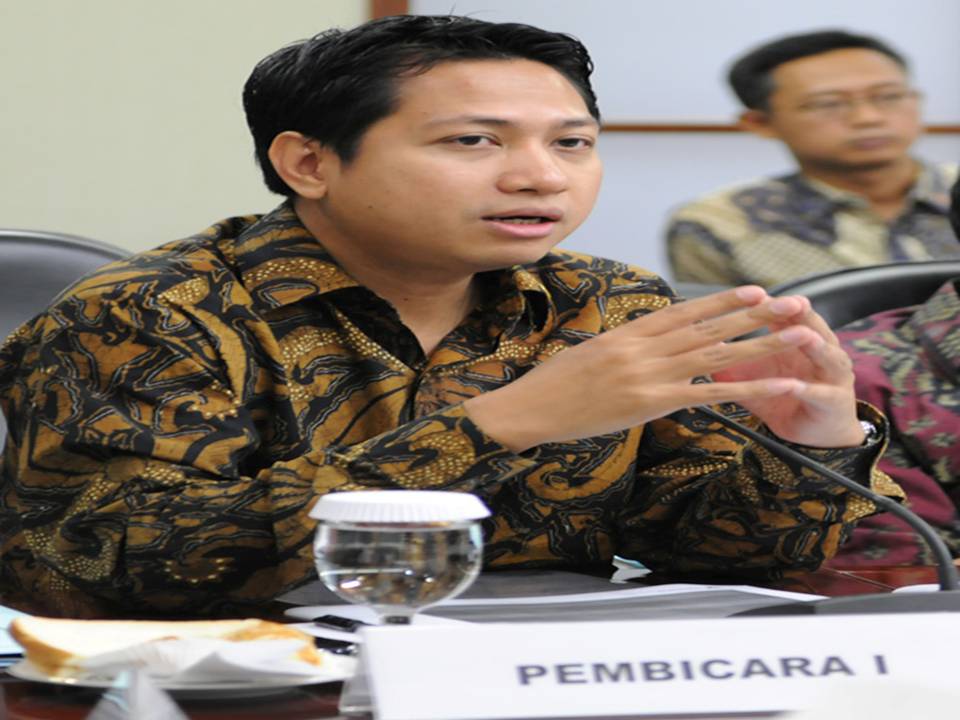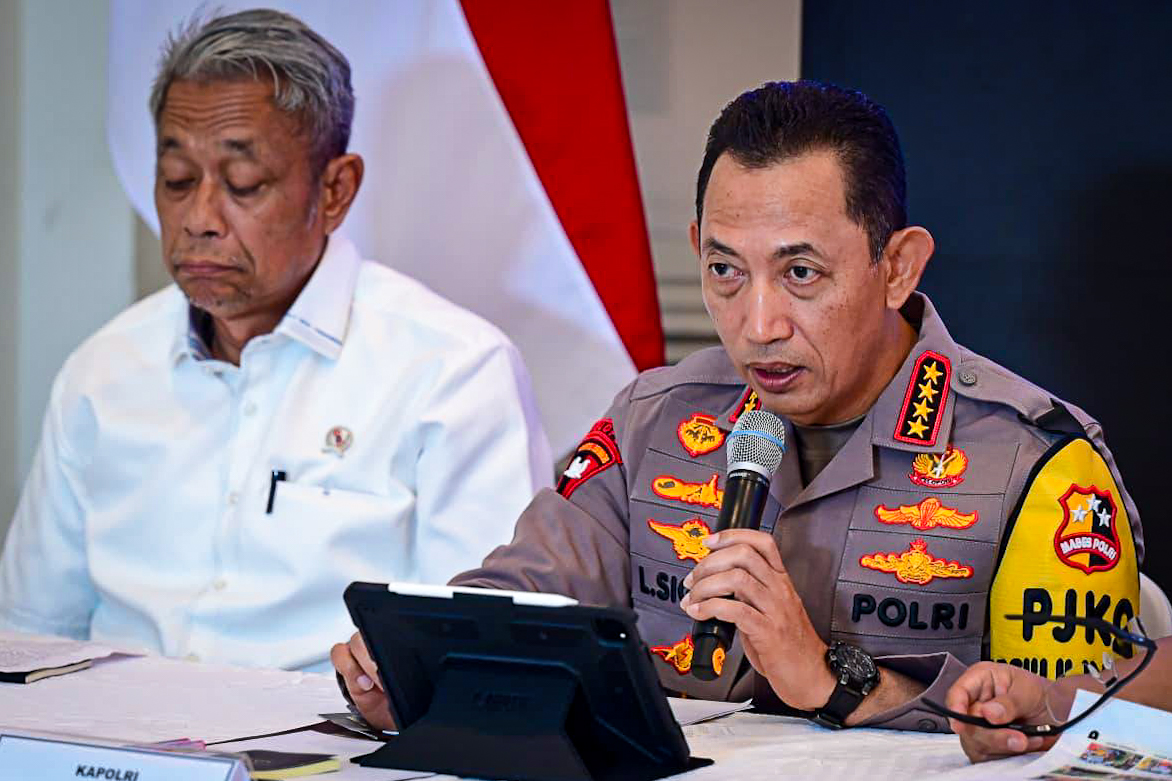Increase in Indonesia’s Global Competitiveness Index Reflects Improvements in Its Economic Performance
 Indonesias Global Competitiveness Index increases drastically, as announced by the World Economic Forum (WEF) through its portal http://www.weforum.org. This increase reflects continual improvements in Indonesias national economic performance, especially when the worlds economy slows down.
Indonesias Global Competitiveness Index increases drastically, as announced by the World Economic Forum (WEF) through its portal http://www.weforum.org. This increase reflects continual improvements in Indonesias national economic performance, especially when the worlds economy slows down.
Such statement was expressed by Presidential Special Staffer for Economic Affairs and Development Prof. Firmanzah, Ph.D. in Jakarta on Wednesday (17/9), to respond to WEFs news release concerning the Global Competitiveness Report (GCR) 2014-2015 which mentions that Indonesia ranks 34th from 144 countries, or its rank rises by 4 points from its 2013-2014 rank (38th) and rises drastically from its 2012-2013 rank (50th).
The sharp increase in Indonesias global competitiveness results from a number of our development programs which have been or are being carried out, Firmanzah said.
He mentioned that infrastructure development in the last five years is the Governments main priority to strengthen our national competitiveness. The acceleration of infrastructure development is supported by the programs contained in the Master Plan for Acceleration and Expansion of Indonesias Economic Development (MP3EI) by prioritizing national connectivity in 6 economic corridors.
In addition to infrastructure development, according to Firmanzah, the Government also continually promotes policies on industrialization and up-streaming which are expected to enhance added values for national economic activities and are aimed to be the future economic machines which can ensure all Indonesians welfare through the creation of job opportunities, increase in families purchasing power, and significant increase in economic activities outside Java.
Firmanzah, Professor at the University of Indonesia School of Economics Jakarta, stated that the increase in Indonesias global competitiveness has been noticeable in the last five years. He explained that, as regards global competitiveness, Indonesia ranked 54th in 2009-2010, 50th in 2012-2013, 38th in 2013-2014, and presently 34th in 2014-2015.
So, since 2009, Indonesias global competitiveness has risen by 20 points, from 54th rank to 34th rank, Firmanzah stated.
Ranking 34th in 2014-2015, Indonesia surpasses a number of countries like Spain (35th), Portugal (36th), Turkey (45th), Brazil (57th), Mexico (61th), India (71th), Italy (49th), and South Africa (56th) which even experienced decline.
Six Pillars
According to Firmanzah, there are three pillars with 12 indicators which WEF uses as the basis for measurement in determining the ranking of global competitiveness index. Those three pillars consist of basic requirements, efficiency, and technological innovation.
Those three pillars, Firmanzah continued, are assessed with 12 indicators which include institutions, infrastructures, macroeconomic environment, health and primary education, higher education and training, goods market efficiency, labor market efficiency, financial market development, technological readiness, market size, business sophistication, and innovation.
In the three main pillars which WEF uses as the basis for measurement, according to Firmanzah, Indonesia also experienced increase in global competitiveness. As regards the basic requirements pillar, Indonesias rank rises from number 70 in 2009-2010 to number 46 in 2014-2015 or rises by 24 points.
As regards efficiency enhancer, Indonesias rank rises from number 58 in 2012-2013 to number 46 in 2014-2015 or rises by 8 points in 2 years. Meanwhile, as regards innovation and business sophistication, Indonesias rank rises from number 41 in 2011-2012 to number 30 in 2014-2015 or rises by 11 points.
According to the Presidential Special Staffer for Economic Affairs and Development, there are 6 indicators (of the total 12 indicators that WEF uses as the basis for measurement of the 144 countries global competitiveness) which contribute to the increase in Indonesias global competitiveness index in the last five years.
Those six indicators are (1) infrastructure development, (2) macroeconomic environment, (3) financial market development, (4) market size, (5) health and primary education, and (6) technological readiness.
Firmanzah explained that Indonesias rank for infrastructures in Global Competitiveness Index 2014-2015 is 56th and tends to rise continually from number 84 in 2009-2010, number 82 in 2010-2011, number 76 in 2011-2012, number 72 in 2012-2013, to number 61 in 2013-2014. The increase in infrastructures rank becomes the main factor for the improvements in Indonesias global competitiveness in 2014-2015.
Meanwhile, Indonesias macroeconomic environment experiences significant increase from 2009 to 2014. In 2009-2012, Indonesias macroeconomic environment ranked 52nd, and in 2014-2015, it ranks 34th or rises by 18 points. Condition of national economic fundamentals which are growing stronger becomes the catalyst for macroeconomic improvements in the last five years. The growth tends to be positive in the range of 5 to 6 percent in the last five years, with gross domestic product (GDP) reaching USD 870.3 billion, GDP per capita reaching USD 3,509.82, and the ratio of Indonesias GDP to the worlds reaching 1.49 percent.
Meanwhile, amid inclusive financial programs, the rank of Indonesias financial market development also rises significantly. In 2009-2010, Indonesias financial market development ranked 61th, while in 2014-2015 it ranks 42nd or rises by 19 points.
Market size, according to Firmanzah, is a factor which also strengthens Indonesias global competitiveness. The large domestic market and the improving purchasing power become the factors which stimulate the reinforcement of Indonesias global competitiveness. Indonesias market size in 2014-2015 ranks 15th from 144 countries surveyed by WEF.
As regards education and health, Firmanzah continued, the rank of Indonesias competitiveness also tends to increase. In 2009-2010, Indonesias education and health ranked 82th and in 2014 it ranks 74th or rises by 8 points.
The Governments seriousness in developing science and technology also contributes to Indonesias global competitiveness. Indonesias technological readiness in 2014-2015 ranks 77th or increases by 11 points from 88th in 2009-2010.
According to Firmanzah, the interesting point in WEFs 2014-2015 report is the shift of the most problematic factors doing business in Indonesia, namely corruption (which ranks 1st), access to funding (2nd), and inflation (ranking 3rd).
Three most problematic factors doing business in Indonesia which do not shift in the last 10 years are infrastructures, bureaucratic efficiency, and corruption.
That means that many problems related to infrastructures and bureaucratic efficiency havent been solved yet through a number of programs for bureaucracy reform and acceleration of infrastructure development, Firmanzah concluded. (ES)








